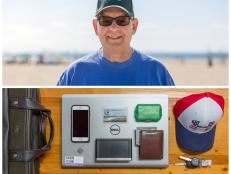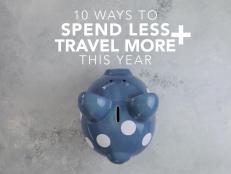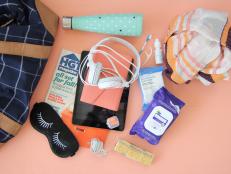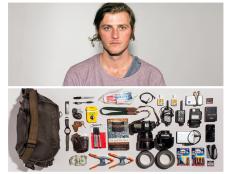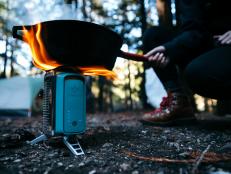10 Ways to Protect Your Info When You Just Can't Unplug
Staying connected can be risky business.
When you’re on vacation, lounging on a unicorn-shaped float as you overlook some sapphire-blue sea, it's natural to want to share images with your friends back home. Maybe you have to check work emails, too. So you plug in to the public Wi-Fi at your hotel, or at a coffee bar or airport gate.

iStockphoto.com/alexsl
Free Wi-Fi is convenient, but not always secure.
That’s not always safe, say the experts at McAfee, a global cybersecurity company. “The riskiest thing we do is treat our vacation location like our home or workplace,” says Gary Davis, a McAfee Consumer Security Evangelist. But a digital detox is tough. In a recent McAfee-commissioned study, 62% of respondents said they stayed plugged in when traveling so they could connect with family and friends.
Don't let hackers ruin your trip. Use these tips to keep your personal info safe and secure.
10 Smart Ways to Protect Your Digital Information:
1: Davis says thieves are usually quick to use info like credit card numbers, so check your statements and online accounts regularly and often. Freeze your card if you see anything suspicious. Unfortunately, Davis warns, you won’t always know right away if you've been hacked. Also, use a password manager. Davis adds, “If someone accesses one of your accounts, the first thing you should do is change your password” and notify that company. A password manager helps you change passwords fast.
2: Verizon.com recommends creating strong passwords that are easy to remember but tough to guess. In general, longer passwords are more secure. Use a random combination of capital letters, numbers and symbols. Don’t use public info, like the birth date you posted on your Facebook page.
3: Secure your by signing up for Google alerts. You'll get a message if Google detects suspicious activity or an unknown device .
4: Turn on two-factor authentication or verification, such as sign-in and security for Google. This adds a second layer of security when someone tries to sign into your email from a unrecognized device.
5: Davis recommends using a virtual private network, or VPN, to keep your info secure when you're using public Wi-Fi. “Make sure to select a VPN that works across all your devices. There are several on the market, including McAfee Safe Connect," available for iOS and Android. A VPN takes your data through an encrypted “tunnel,” so other devices on the same network can’t decipher it. Some VPNs are free, while others are subscription or fee-based.

iStockphoto.com/milindri
Be wary of downloading third-party apps that can infect your smartphone with malware.
6: Be sure your Wi-Fi connection is secure. How can you tell? Davis says, “The rule of thumb is that if a password is required to access the Wi-Fi, then it is most likely safe." But hackers can still get into networks, so “your best option is to use a VPN when connecting from an unknown Wi-FI.”
If you must use public Wi-Fi, you can still do some things that won’t put your personal info at risk. “For example, browsing the Web for local restaurants or things to do would not put any of your personal information at risk,” Davis explains. “Kids can use their devices for activities such as gaming, keeping in touch with friends, etc., where they are not divulging specifics about your trip or doing anything that serves up sensitive personal information about them or other members of your family. Use going on vacation as an opportunity to have a discussion with your kids about the importance of online safety.”
7: Review your operating system and applications regularly. Davis says he checks his bank and financial applications daily, and also looks for OS and app updates. "I update them immediately, as very often those updates include security fixes.”
8: If you lose a device, and all your devices are on the same platform (that is, all iOS or Android), Davis recommends using the location software that came with the device to find it. Just be sure to turn it on when you first get the device. If you’re using different types of devices, he recommends a privacy protection solution like McAfee LiveSafe to help locate them.

iStockphoto.com/VladTeodor
If work can't wait, opt for VPN service when using public Wi-Fi that isn't password-protected.
9: Be cautious about posting on social media when you're away. Wait until you're home to share photos, your vacation destination, and other details.
10: “When you’re on vacation, turn off things like GPS and Bluetooth unless you are actively using them," Davis says. "This will make your device safer and extend battery life. Finally, if you need to bank or shop while on vacation, use your cell connection instead of Wi-Fi.”
